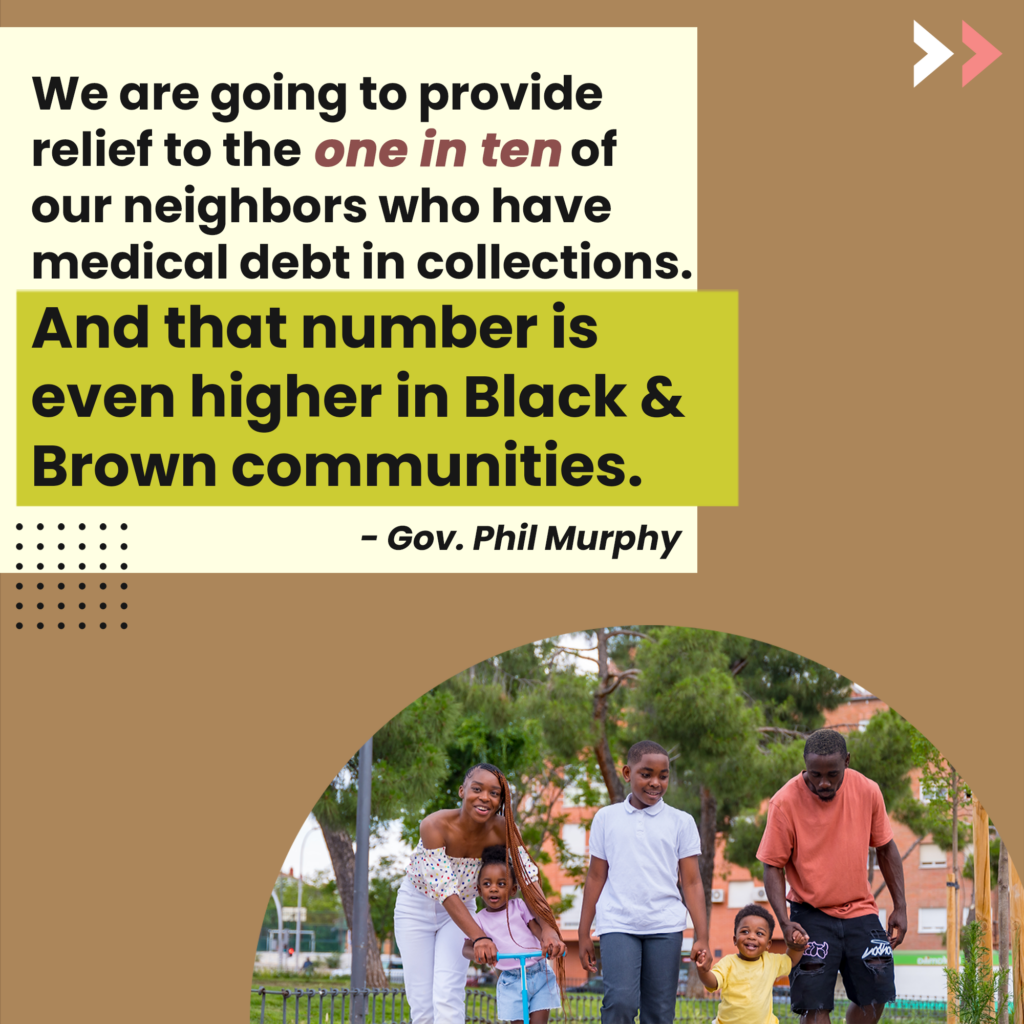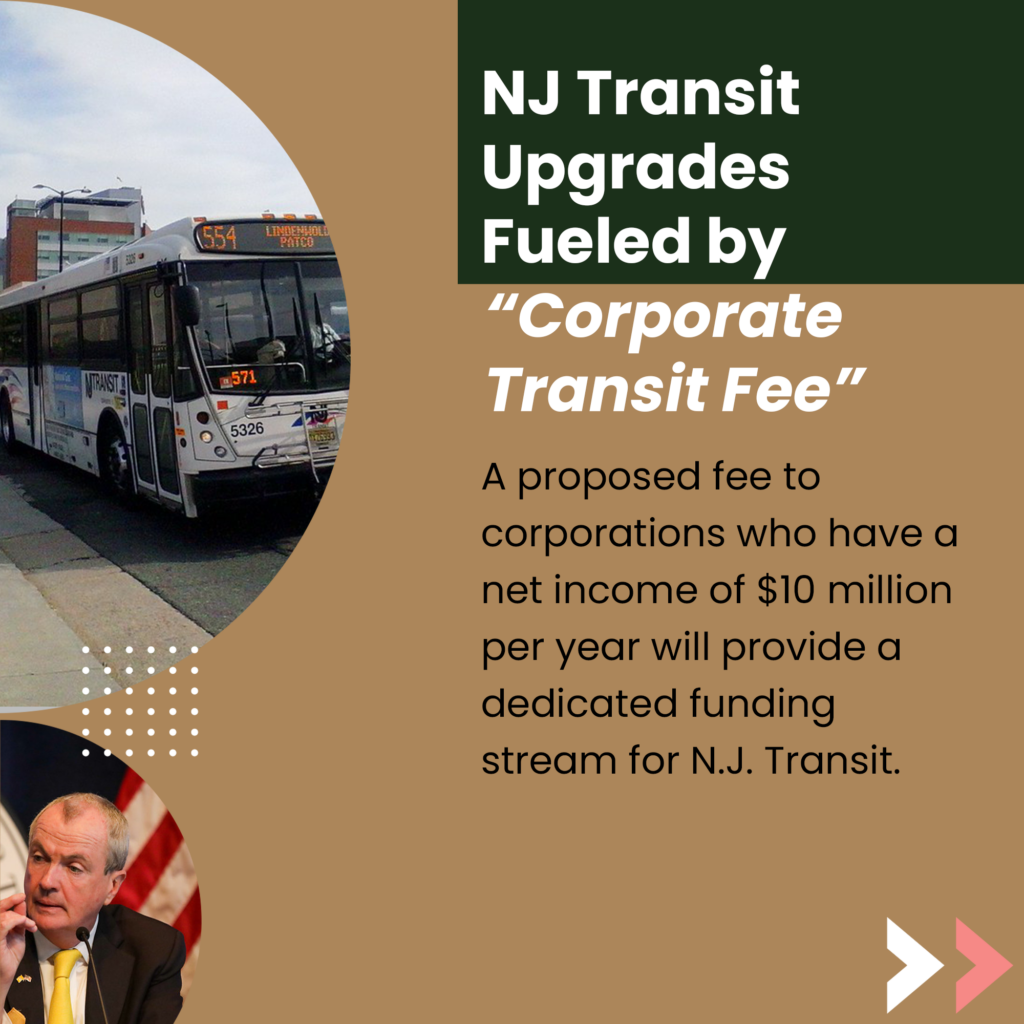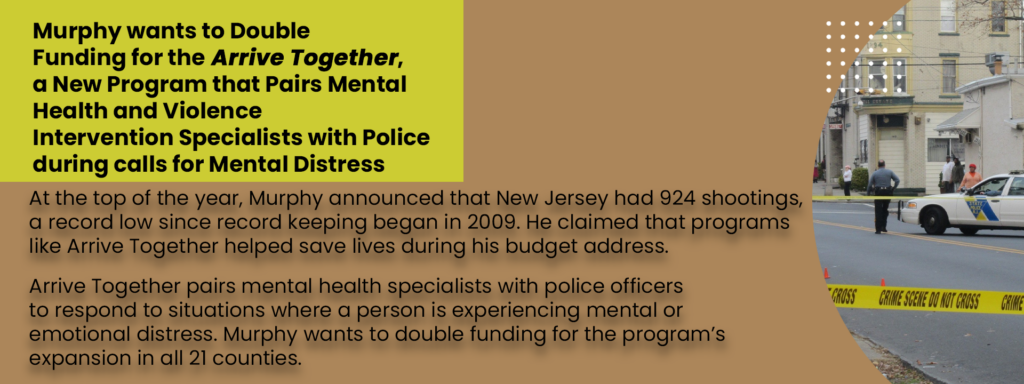As New Jersey residents seek relief around rising expenses and medical debt, Governor Phil Murphy proposed a budget on Tuesday that would provide medical debt relief and boost funding for NJ Transit and public schools.

During his fiscal year 2025 budget address, Murphy promised to address predatory medical debt collection, which he said plagues people in need.
“We are going to provide relief to the one in ten of our neighbors who have medical debt in collections. And that number is even higher in Black and Brown communities,” Murphy said.
The Democratic governor has called on the Legislature to pass and fund the Louisa Carmen Medical Debt Relief Act, which prohibits debt collectors from disclosing a patient’s medical debt worth less than $500 to any consumer agency, among other provisions.
Murphy’s plan includes upgrading the NJ Transit systems by incorporating a new corporate transit fee. This fee will require New Jersey’s most profitable companies, those with $10 mil or more in net income, to fork out funding to support these changes.

$900 mil for public schools, including expansion of free Pre-K
Education was a top priority in the budget address, including the expansion of free Pre-K. Murphy promised to allocate 900 million dollars to the public school funding formula.
“It will add over 1,000 seats to our state’s pre-schools — at no additional cost to our parents. That is tens of thousands of dollars in savings for individual families every single year. And — by giving our kids a jumpstart in their academic careers — we will help prepare them for successful professional careers at the same time,” Murphy said.
Ready to Retire Program expansion.
Murphy’s budget offers a new program that he says will provide a state-funded retirement savings program for workers who do not have access to a pension or a retirement savings account. The Retire Ready NJ Program will allow them to invest in a retirement savings account, and the governor said the program would be free to the public.
Doubles funding for Arrive Together.
At the top of the year, Murphy announced that New Jersey had 924 shootings, a record low since record-keeping began in 2009. He claimed that programs like Arrive Together helped save lives during his budget address. Arrive Together pairs mental health and violence prevention specialists with police officers to respond to situations where a person is experiencing mental or emotional distress. Murphy wants to double funding for the program’s expansion in all 21 counties.

Republican Rebuttal
Republican leaders believe that Murphy made some empty promises during his speech, including his vow to boost funding for education.
“The governor said very specifically that with this increase in school funding of 900 and some odd million dollars this year, it’s going to benefit every single school child and property taxpayer. That is blatantly, patently false. He’s cutting aid to 240 districts,” said Republican Senate Budget Officer Declan O’Scanlon (R-Morris).
Republicans also railed against Murphy’s plan to fund NJ Transit using the corporate transit fee. They compared it to New Jersey’s corporate business tax, which sunset this year.
GOP Assembly Budget Officer Nancy Munoz (R- Union) said NJ Transit already has a lot of money and that the state can “pet projects” to fill the agency’s revenue gaps.
“NJ Transit [has] a $3 billion a year budget,” Munoz said. “But, we still haven’t fixed it.”
This story was produced as part of the Center for Cooperative Media at Montclair State University’s South Jersey Information Equity Project fellowship and supported with funding from the Independence Public Media Foundation, the Geraldine R. Dodge Foundation, and the NJ Civic Information Consortium.
